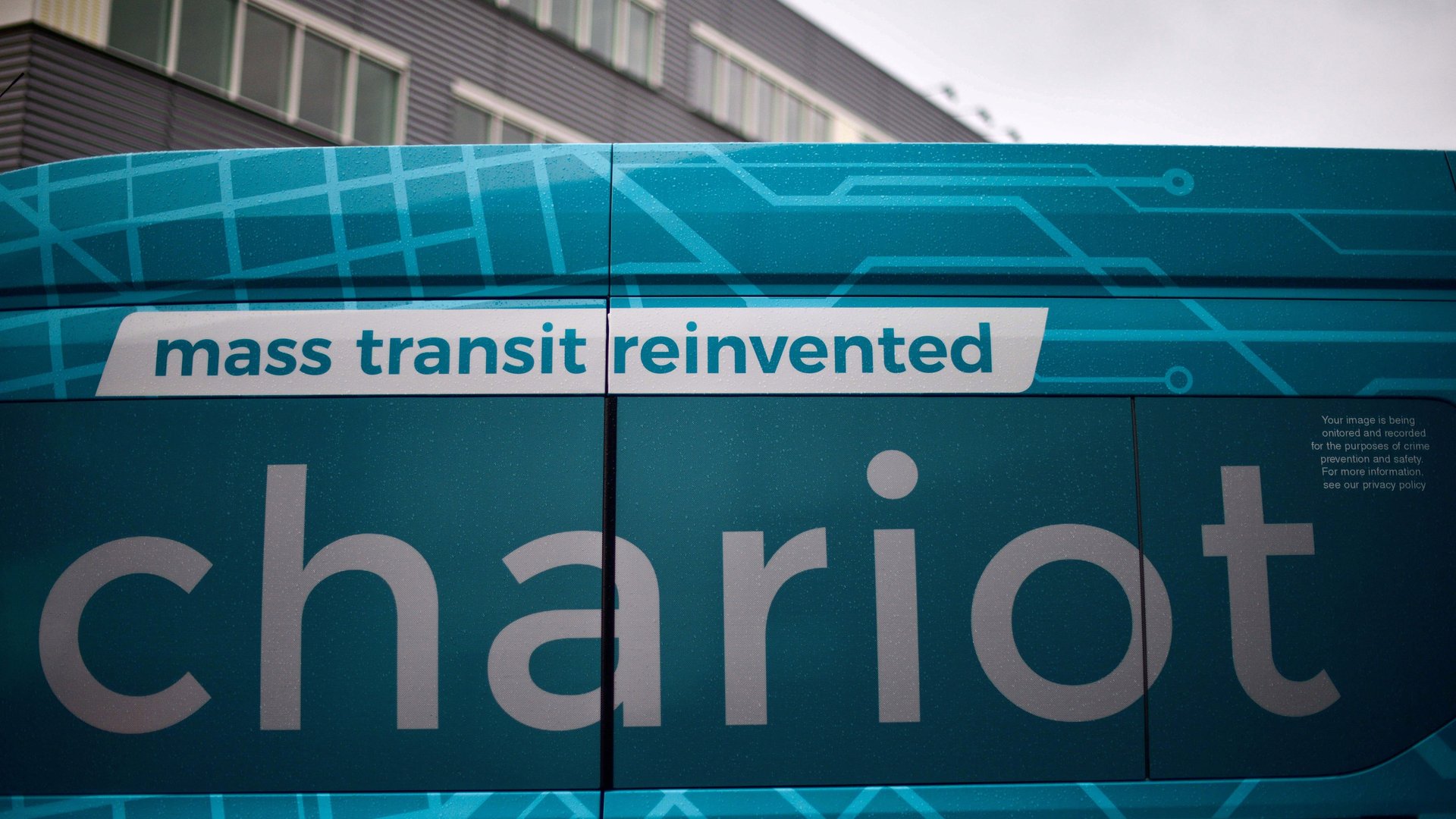Ford learned the hard way that the world didn’t want a better bus
Chariot, the private mini-bus service owned by Ford, will shut down on Feb. 1, the company announced yesterday (Jan. 10). “In today’s mobility landscape, the wants and needs of customers and cities are changing rapidly,” Chariot CEO Dan Grossman wrote on the company’s blog. “We apologize for the inconvenience this may cause Chariot’s riders and our enterprise customers.”


Chariot, the private mini-bus service owned by Ford, will shut down on Feb. 1, the company announced yesterday (Jan. 10). “In today’s mobility landscape, the wants and needs of customers and cities are changing rapidly,” Chariot CEO Dan Grossman wrote on the company’s blog. “We apologize for the inconvenience this may cause Chariot’s riders and our enterprise customers.”
Chariot was one of the better-known startups among a slew of companies aiming to modernize the bus. Instead of offering large busses, Chariot invested in 14-seat shuttle vans and let passengers reserve rides through a smartphone app, usually for less than $5. It launched in San Francisco in 2014 with the goal of being an affordable commuting option in a city with lackluster public transit and abysmal road congestion.
Ford bought Chariot for a reported $65 million in 2016 as part of its own push into “mobility,” a sweeping term used to talk about the future of transportation. As Americans cooled on personal car ownership, Ford wasn’t the only automaker looking for new opportunities. General Motors rolled out Maven, a network for car owners to rent their vehicles. Daimler invested in Turo, a San Francisco-based startup for personal vehicle rentals. Ford also partnered with bike-share operator Motivate (later bought by ride-hail company Lyft) to brand San Francisco’s local bike-share program.
The idea behind most of these investments was that in the future we would need fewer cars on the road. That was also the thesis of the shared rides products that both Uber and Lyft introduced several years ago. But the benefits of the private mini-bus remain unclear. Some transit experts worry that instead of reducing congestion in cities like San Francisco, shared ride services have compounded it, and are drawing users away from public transit systems. Rider reviews of the mini-bus model are also mixed. Chariot struggled to get enough riders, its spokesperson told Wired.
Was it Chariot, or was it us? It’s an open question whether people want to share their ride with strangers, even for a low price. The newest trend in mobility is electric bikes and scooters, a form of transportation that requires no invasions of personal space. In November, Ford spent $100 million to buy scooter company Spin. It won’t be mourning Chariot for long.